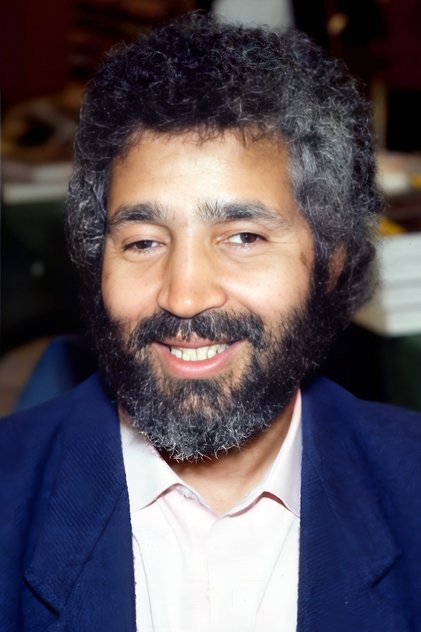
Rabah Belamri
Rabah Belamri, born October 11, 1946 in Bougaa, in the Sétif region, in Algeria, and died September 28, 1995 in Nanterre, is an Algerian writer. Rabah Belamri lost his sight in 1962 (the year of Algeria's independence). After studying at the Sétif high school, at the School for Blind Youth in El Biar (Algiers), at the Bouzareah Teachers' College and at the University of Algiers, he arrived in Paris in 1972 where he defended a doctorate on the work of Louis Bertrand, Mirror of Colonial Ideology which was published by the Office of University Publications (OPU) in 1980. He acquired French nationality. He is the author of several collections of poems, stories and novels inspired by his Algerian childhood. “Present in my novels, the themes of childhood are at the center of The Sun Under the Sieve and Memory in an Archipelago. These two stories, set in the world of childhood, present themselves both as an exploration of the foundations of my being and as an archeology of collective memory. » In his works, Belamri places his characters in places from his childhood in an Algeria at war and post-independence, and makes them speak in dialect Arabic by drawing their expressions from the local land. Thus in “Women Without Face”, he describes the euphoria of the time: “The volleys of rifles, the crazy horns, the vibrations of drums… a rumor of ululations or patriotic songs broadcast over loudspeakers. » A distinguished storyteller, he borrowed from Algerian popular culture “symbols, metaphors, turns of phrase, rhythms of language, modes of narration”. But more than a storyteller, Belamri was naturally interested in Algerian problems; thus, regarding the condition of women, for him: “Our society will be condemned to error and powerlessness as long as women are not taken into account”, because they are “a symbol of freedom and life”. He says no to “ideologies of regression.” » As for the place of Algerian writers of French writing in the national culture: “It has been more than forty years since French-language Algerian literature acquired legitimacy in Algeria and outside Algeria. Imposed by history, it is, whether we like it or not, a national reality. Wanting to expel from our literary memory Amrouche or Sénac, Kateb or Mammeri: a behavior of self-harm. The anathema cast on this part of our culture is frankly scandalous. It constitutes an attack on freedom of expression and creation. » His relationship with the French language which “is not opposed to the language of the mother, but maintains a relationship of creative exchange with it”. Touched by the work of Jean Sénac to whom he devoted an essay and whom he considered as a guide. For Rabah Belamri, tireless questioner of the world, poetry is undoubtedly only a means which participates, with others, in a quest for clarity and fullness. A need for light like water long refused but also a denunciation of everything that burdens daily life and hope: the alienated or bargained-for woman, the sequestered happiness. He died on September 28 in 1995 in Paris following a surgical procedure, leaving his work unfinished.
- Наслов: Rabah Belamri
- Популарност: 0.001
- Познат по: Acting
- Рођендан: 1946-10-11
- Место рођења: Bougaa, Algeria
- Почетна страница: https://www.babelio.com/auteur/Rabah-Belamri/22614
- Такође познат као: رابح بلعمري

